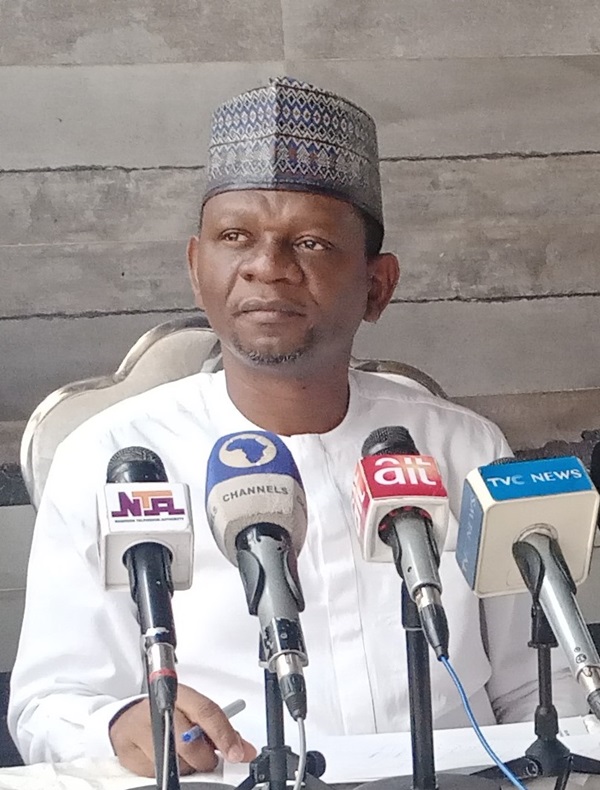
The National Primary Health Care Development Agency (NPHCDA) on Tuesday launched a workshop in Abuja to formally roll out the redesigned community-based health workers (CBHW) programme, a critical step in strengthening Nigeria’s primary healthcare system and expanding access to essential care in underserved communities.
The workshop, themed “Optimised Community Health Workforce: Key to Strengthening PHC and Achieving Universal Health Coverage,” gathered key stakeholders from federal, state and local governments, as well as development partners, to galvanise support for the programme’s implementation nationwide.
Speaking at the event, the executive director of the NPHCDA, Dr. Muyi Aina explained that the redesigned CBHW programme is aimed at formalising and streamlining the roles of community health workers to ensure consistent, quality service delivery across rural and hard-to-reach areas. He said the programme aligns with President Bola Tinubu’s health sector agenda, which prioritises reducing maternal and infant mortality by improving basic healthcare services.
Aina highlighted ongoing efforts by the Federal Ministry of Health and Social Welfare, alongside relevant agencies, to ensure accessible and affordable healthcare for all Nigerians. He revealed that more than 1,000 primary health centres had been upgraded from sub-optimal to optimal status within the past year, while an additional 2,500 are currently undergoing revitalisation across the states.
He also noted that more than 60,000 frontline health workers have been retrained and deployed to support these improvements. He acknowledged the contributions of the president’s wife, Senator Oluremi Tinubu, who donated over 60,000 uniforms and kits to midwives across the six geopolitical zones to enhance workforce morale and visibility.
Despite these strides, Aina underscored the irreplaceable role of community health workers in bridging the gap between healthcare facilities and the populations they serve. He stressed that reaching every household quickly and effectively requires an empowered community-based workforce that can build trust, offer basic care and improve referral systems.
Also speaking at the event, chairman of the Health Commissioners Forum, Dr. Oyebanji Filani said the initiative embodies a collaborative approach involving the three tiers of government. He explained that the Nigerian Governors Forum, along with the Association of Local Governments of Nigeria (ALGON), is co-developing a practical framework that considers the unique healthcare challenges of each state.
Stakeholders at the event, including representatives from the Nigerian Governors Forum, World Health Organisation (WHO), UNICEF, the World Bank and other development partners, expressed strong support for the CBHW initiative, describing it as a timely and innovative step toward achieving Universal Health Coverage in Nigeria.

